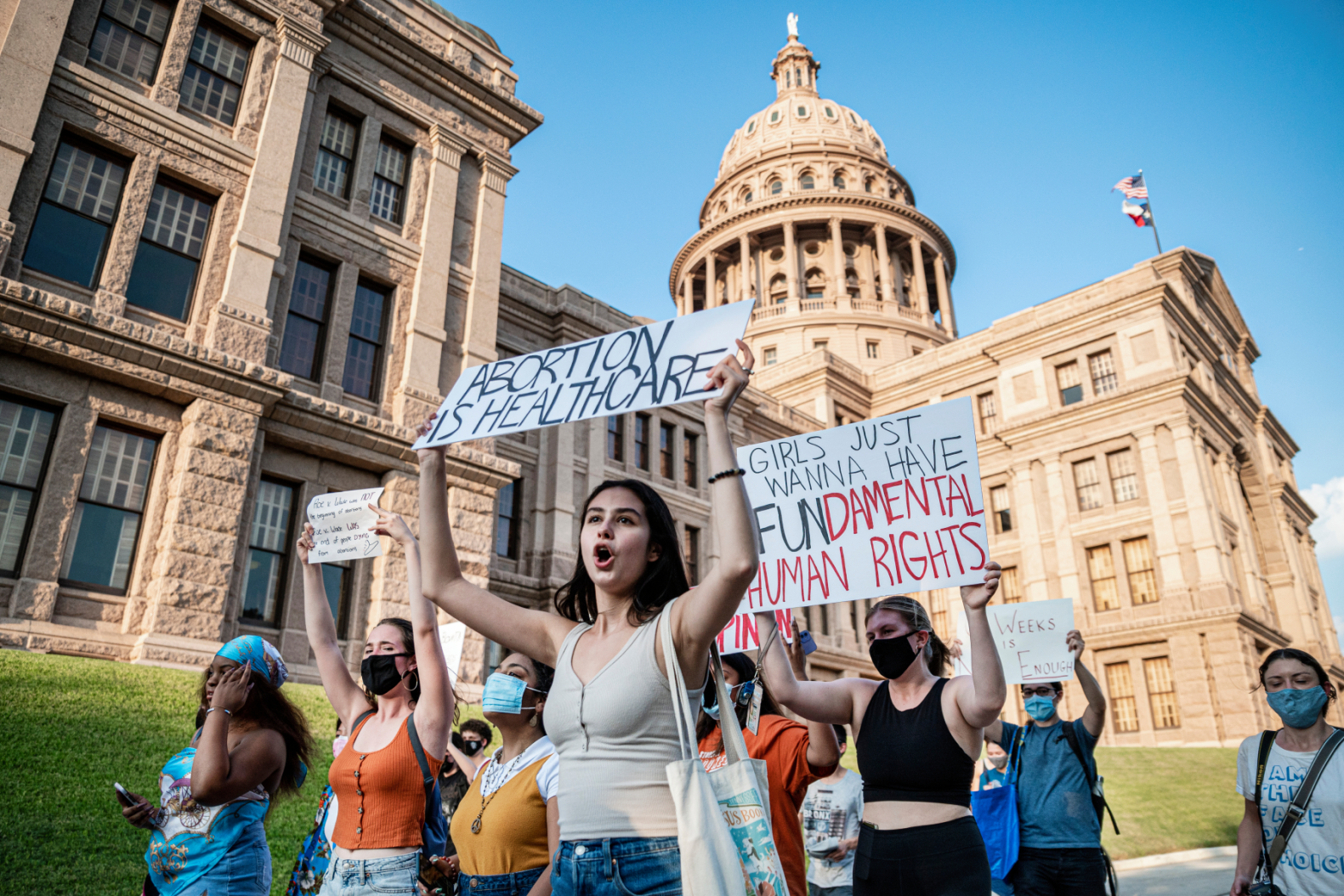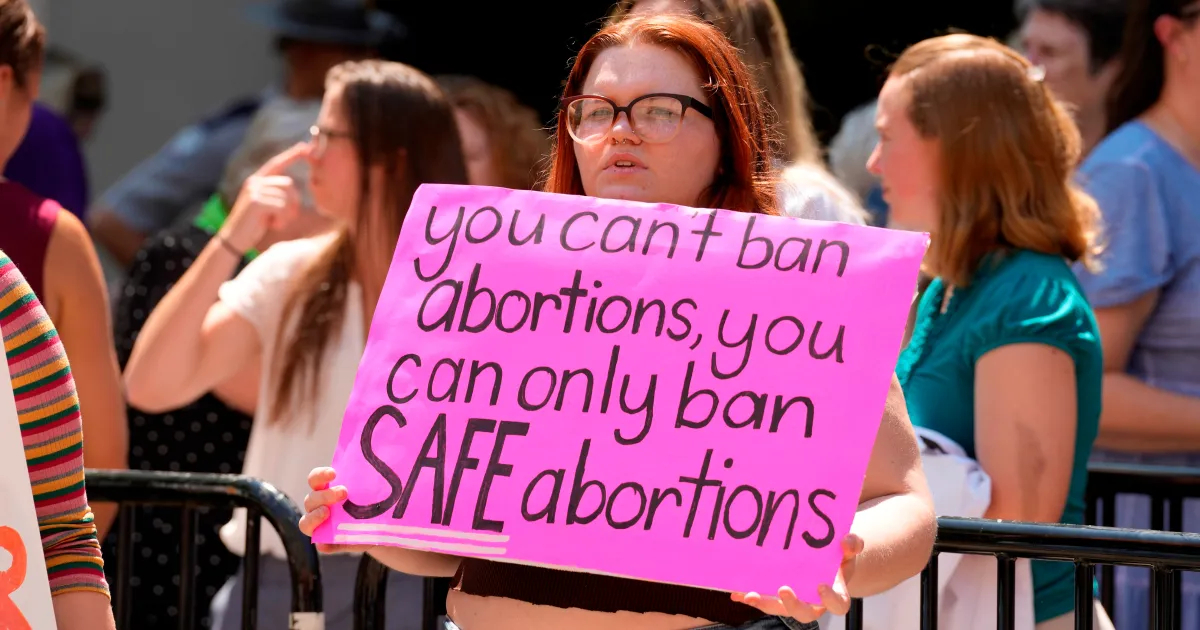Texas Supreme Court Puts a Halt to Woman's Emergency Abortion, Forcing Her to Seek Out-of-State Care
The Texas Supreme Court's recent decision has stirred a significant controversy in the ongoing debate over reproductive rights. The court temporarily blocked a judge's ruling that would have allowed Kate Cox to receive an emergency abortion.
This decision underscores the stringent restrictions of Texas' abortion ban forcing Cox to consider seeking care outside the state. The case has become a focal point in the broader legal battle surrounding abortion rights drawing attention to the challenges faced by women in Texas under the current laws.
The implications of this decision are far-reaching. For Cox it means navigating a complex and potentially distressing situation as she must now look beyond her home state for the care she needs. This case highlights the real-life impact of the abortion ban on individuals and their families.
It also raises critical questions about access to reproductive healthcare and the legal rights of women in Texas. As the legal battle continues the case of Kate Cox serves as a poignant example of the personal and legal struggles entwined in the issue of abortion rights.

A Legal Battle Unfolds
Texas Attorney General Ken Paxton has petitioned the Supreme Court to reverse a lower-court ruling that grants Kate Cox the ability to terminate her pregnancy under a 14-day restraining order against the state's abortion ban. Paxton argues that Cox has not provided sufficient evidence to demonstrate that her pregnancy poses a "life-threatening" medical condition that could result in her "at risk of death" or major harm. This legal maneuver adds another layer to the divisive debate surrounding abortion legislation in Texas.
Texas' Stringent Abortion Ban
Under the current Texas law abortion is prohibited after six weeks of pregnancy often before most individuals even realize they are pregnant. This restrictive law includes no exceptions for cases of rape or incest causing further anguish for those seeking reproductive healthcare. Additionally the law authorizes private citizens to file lawsuits against doctors or abortion clinic workers involved in performing or facilitating the procedure. This legislation has ignited passionate arguments from both sides of the abortion debate.
A Distressing Diagnosis
Kate Cox's case is a deeply moving and complex one. At 20 weeks pregnant she faces a heart-wrenching situation: her fetus has been diagnosed with trisomy 18 a severe genetic condition. This diagnosis not only puts her health at risk but also affects the viability of her pregnancy.
Medical experts have informed Cox that the likelihood of her pregnancy resulting in a stillbirth is high. Even if the baby were to be born alive it would face a significantly limited lifespan due to the severity of the condition.
Despite these grave circumstances Cox's request for an emergency abortion has been met with legal obstacles due to Texas' restrictive abortion laws. Her struggle highlights the harsh realities faced by many under such regulations. The laws not only challenge her autonomy but also force her to confront an emotionally and physically taxing situation without the necessary medical support.
Texas Supreme Court's Ruling
The recent appeal by Attorney General Paxton to the Supreme Court has led to a significant development in Cox's case. The court's decision to temporarily block Cox from receiving an emergency abortion has raised serious concerns among her legal team and reproductive rights advocates.
Molly Duane an attorney with the Center for Reproductive Rights representing Cox voiced her worries about the delay in providing Cox with the medical attention she urgently needs.
This ruling is more than just a legal matter; it's about a person's right to make critical decisions about their healthcare. The court's decision has put a spotlight on the ongoing debate surrounding reproductive rights and the complexities involved in such cases. For Cox and her legal team this temporary block represents a potential infringement on her rights and a hurdle in accessing necessary healthcare.
The Impact on Kate Cox
Following the block by the Texas Supreme Court Cox has made the difficult decision to leave the state to access the necessary abortion services. Cox's health and future fertility are at stake compelling her to take this step. The Center for Reproductive Rights revealing the urgent nature of her situation announced Cox's departure from Texas to seek the time-sensitive abortion care required. This case highlights the challenging circumstances faced by individuals who must travel out-of-state to receive the healthcare they need.
The Battle for Reproductive Rights
Nancy Northup the Chief Executive of the Center for Reproductive Rights has brought attention to the critical nature of Cox's situation. She pointed out the severe implications of Cox's forced relocation due to the stringent abortion laws in her state.
This case is not just about one individual; it highlights the broader challenges and limited options faced by many seeking reproductive care especially in areas with restrictive abortion laws.
Northup's comments shed light on the larger issue of reproductive rights in Texas and across the United States. The case of Cox is a clear example of how these laws can have profound life-altering consequences for individuals. It underscores the ongoing struggle for reproductive rights and the need for accessible healthcare options.

Seeking a Resolution
As Cox embarks on this journey to access the healthcare she urgently requires the fight for reproductive rights continues. Advocacy groups legal teams and concerned citizens are working tirelessly to challenge the restrictive legislation in Texas and other states. The hope is to establish a legal framework that respects and upholds the rights and choices of individuals seeking reproductive healthcare.
The recent decision by the Texas Supreme Court regarding Kate Cox's case has brought the issue of reproductive rights back into the spotlight. Cox who is dealing with a health-threatening diagnosis and a jeopardized pregnancy now faces the added burden of traveling out of state to seek the care she needs.
This situation highlights the real-life consequences of restrictive abortion laws on individuals who are in critical need of medical services. For Cox and many others in similar situations these laws are not just political debates but challenges that affect their health and well-being.
This case is a stark reminder of the ongoing struggle to protect reproductive rights in the United States. As legal battles continue the outcomes of cases like Cox's are pivotal in shaping the future of reproductive healthcare access.
They bring to light the importance of having laws that safeguard the health and choices of individuals. The story of Kate Cox is a powerful example of why the fight for reproductive rights remains crucial emphasizing the need for laws that support rather than hinder access to necessary healthcare.






